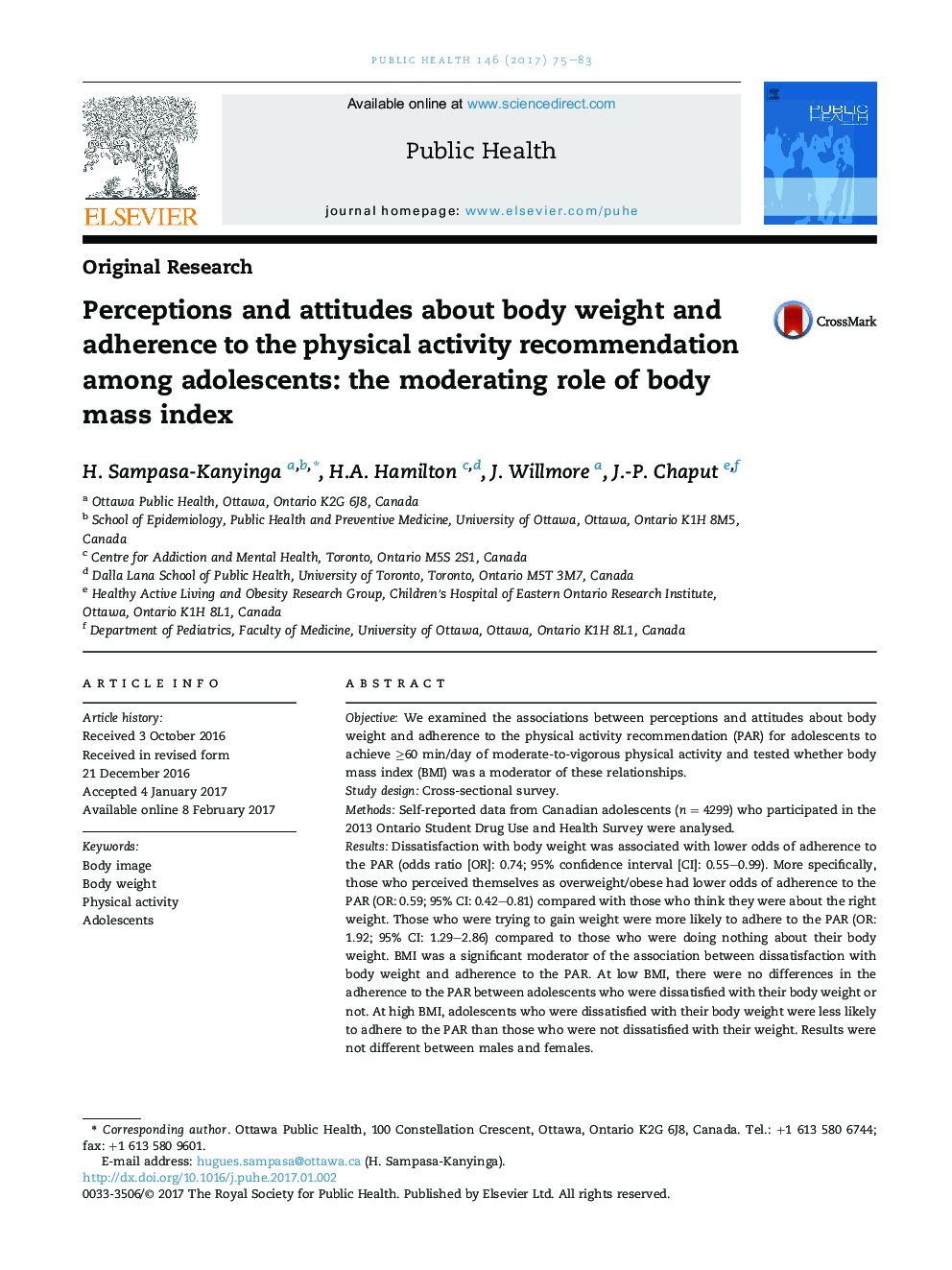| کد مقاله | کد نشریه | سال انتشار | مقاله انگلیسی | نسخه تمام متن |
|---|---|---|---|---|
| 5122971 | 1487197 | 2017 | 9 صفحه PDF | دانلود رایگان |
- Dissatisfaction with body weight was associated with lower odds of adherence to the physical activity recommendation (PAR).
- Body mass index (BMI) moderates the link of dissatisfaction with body weight and adherence to the PAR.
- Dissatisfaction with body weight was linked to lower odds of adherence to the PAR at higher BMI.
ObjectiveWe examined the associations between perceptions and attitudes about body weight and adherence to the physical activity recommendation (PAR) for adolescents to achieve â¥60 min/day of moderate-to-vigorous physical activity and tested whether body mass index (BMI) was a moderator of these relationships.Study designCross-sectional survey.MethodsSelf-reported data from Canadian adolescents (n = 4299) who participated in the 2013 Ontario Student Drug Use and Health Survey were analysed.ResultsDissatisfaction with body weight was associated with lower odds of adherence to the PAR (odds ratio [OR]: 0.74; 95% confidence interval [CI]: 0.55-0.99). More specifically, those who perceived themselves as overweight/obese had lower odds of adherence to the PAR (OR: 0.59; 95% CI: 0.42-0.81) compared with those who think they were about the right weight. Those who were trying to gain weight were more likely to adhere to the PAR (OR: 1.92; 95% CI: 1.29-2.86) compared to those who were doing nothing about their body weight. BMI was a significant moderator of the association between dissatisfaction with body weight and adherence to the PAR. At low BMI, there were no differences in the adherence to the PAR between adolescents who were dissatisfied with their body weight or not. At high BMI, adolescents who were dissatisfied with their body weight were less likely to adhere to the PAR than those who were not dissatisfied with their weight. Results were not different between males and females.ConclusionsResults suggest that adolescents who are dissatisfied with their body weight have lower adherence to the PAR, particularly those who are overweight or obese.
Journal: Public Health - Volume 146, May 2017, Pages 75-83
